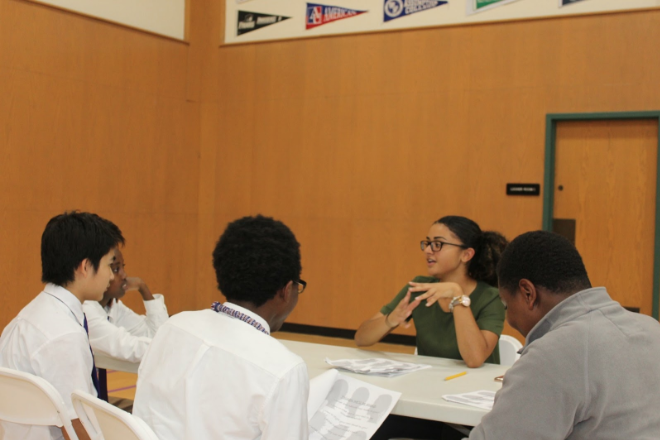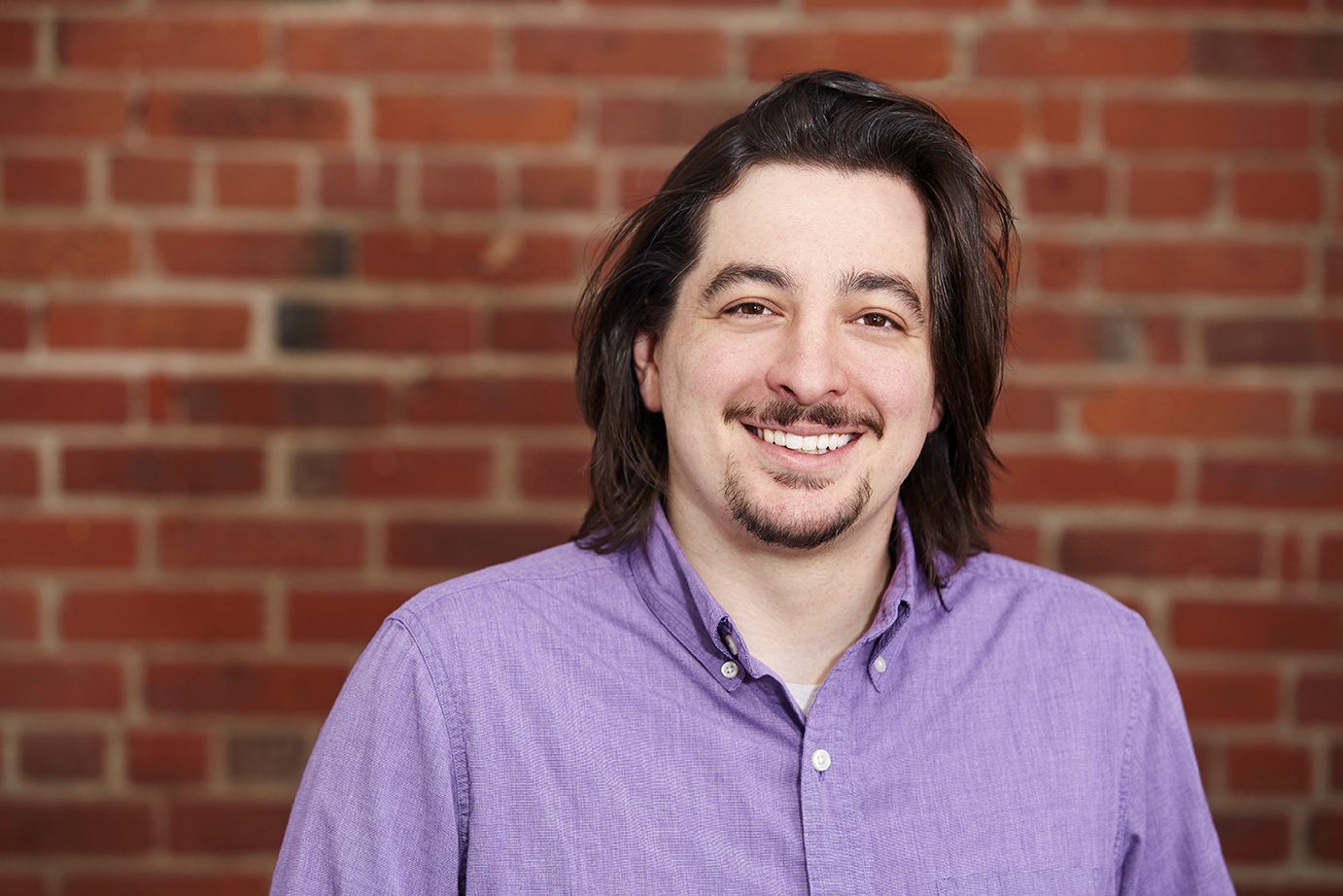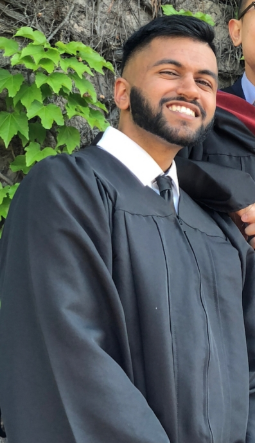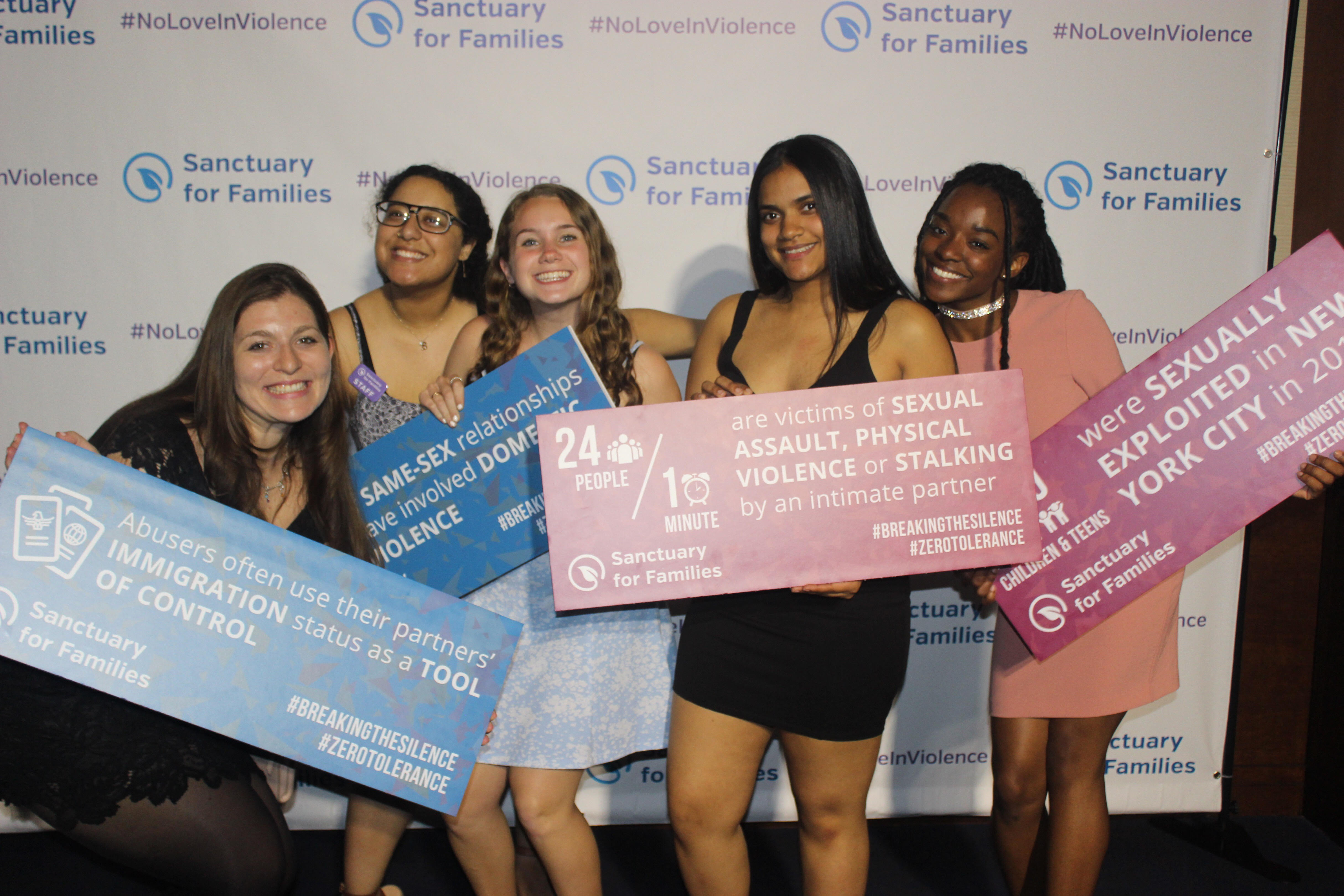By: Kara Cuzzone ’19
Until this past spring, I’d heard about the infamous powerhouse that is the Holy Cross alumni network, but I’d never experienced it firsthand. Then I met Micaela English ’08.
I had the opportunity to meet Micaela through the New York City Semester Program. The program involves a four days a week internship, a seminar, and culminates in a capstone project. There are also regular colloquia meetings with NYC-based Holy Cross alumni in a diverse range of fields. That’s how I met Micaela.
The other students and I were invited to meet Micaela at a restaurant in Midtown to hear about her career path. Micaela was a longtime editor at TOWN&COUNTRY before going to work for brands like Anthropologie, Fresh Beauty, and Armarium. I was drawn to her warm, welcoming presence, and impressed by her expertise. It was clear that she knew her way around the media world, and she was happy to share what she has learned during her years at Holy Cross and beyond.
Given our shared interest in writing, as well as her approachable demeanor, I decided to reach out and ask to meet one on one after the dinner. When we did, I mentioned that I was interested in staying in the city for the summer and finding an internship at a women’s media website. Immediately, Micalea pulled out her phone and began texting friends she thought might have a connection to a potential internship for me. And she didn’t stop there. As the semester progressed, she assisted me with my internship search, gave me pointers on interviewing and networking in the field, and didn’t give up until she had helped me secure an internship for the summer.
My experience with Micaela truly speaks to dedicated alumni network Holy Cross has to offer. She went above and beyond in order to help me get my foot in the door in the women’s media industry. And thankfully, our relationship has continued beyond my internship search. Recently, I was able to ask her a few questions about her life, career path, and advice for current HC students. Below, find our conversation.
What’s it like being a brand consultant and writer?
I consult with beauty, wellness, and fashion brands on their storytelling, social media strategy, and product and site copy and then also freelance write for publications like InStyle and Well+Good. No sugarcoating, it’s a lot, it’s a total hustle and has helped me earn my Masters in time management. What I like about consulting is that no day is quite the same. And with all of these different projects, I am continually growing and diversifying my skill set. For example, right now I’m working on a project for a wellness brand with their product copy, so I am writing the description and instructions on the back of a beauty product coming out next year!
Is there a typical day on the job?
Some days I could be meeting with clients at The Wing for a few hours to solidify brand strategy. Then the next day I could be in my work space all day working on a client project and conducting a celebrity interview for InStyle. It’s constantly changing and flowing, and that’s the beauty and the challenge of it all.
How did you get your first writing job?
I was an editorial assistant at TOWN&COUNTRY magazine. It was a tiny little piece, maybe 100 words, about Kermit the frog being dressed exclusively by Brooks Brothers for the new Muppet movie. I like to think he’d be proud.
Do you have a favorite piece that you’ve ever written?
I think my most personal pieces end up reading the best and feeling the most me. When you’re vulnerable and real, no filter. There was a piece I wrote for InStyle last summer about a life transition I was going through. It was quite personal. Essentially it’s about growth and the journey to self-love, the awakening feeling I started to experience, and the way it set me free. It took a lot for me to put it out there, everyone wants to paint a pretty picture of how your life looks, but the more honest I am, the stronger I feel.
Is there a motto you try to live by?
The universe has your back. I read this book by Gabrielle Bernstein with that phrase as its title, but the motto itself really applies to my adult philosophy of life…with the “Universe” I think you can interpret this to whatever you believe in, God, a higher power. I trust and believe that everything happens for a reason. The hardships, the heartaches, the job that doesn’t work out. I think when one curtain closes, it’s making room for something much bigger. Those hardships have made me who I am. They often do. I always tell people…if Adele hadn’t had that breakup, there’d be no Rolling in the Deep.
What’s one thing you used to worry about in college that now looking back, you wish you hadn’t worried so much about?
That rush Senior year where everyone is whispering, “Did you hear where so and so got a job?” Don’t put that pressure on yourself. Just ride it out. Be aggressive, but be calm. Do something you love but if it doesn’t come knocking on your doorstep until you graduate, so be it. I also will tell you, ten years after you graduate, nobody will care about who had a job offer September of Senior Year. There is no race to the finish line of “getting the job”.
Any tips for current HC students who want to reach out to alums and make a good impression?
So many. Before contacting an alum, research their experience and have questions prepared. Google them. Look them up on LinkedIn. Educate yourself. Please send a thank you email after you speak to an alum, not a thank you text.

Kara Cuzzone ’19

Micaela English ’08












